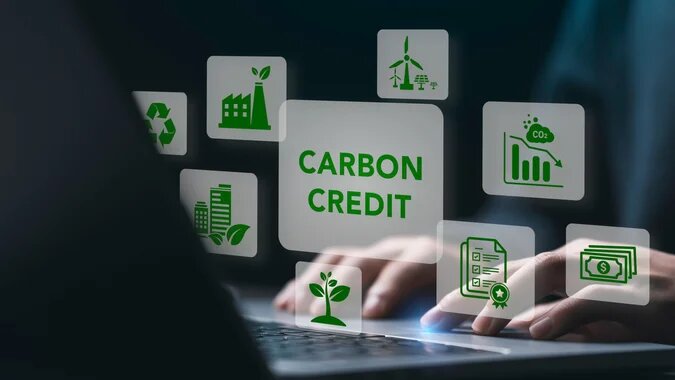Complex climate change web and carbon credits
By Fred.Aminga, December 4, 2023As climate change takes centre stage, sparking debates about carbon credits, it has become important to shine the spotlight on the developing world, since they bear the brunt of so called civilisation and its twin sister; industrialisation, which came with the resulting surge in carbon emissions.
Let’s not overlook the historical context of this whole development—many regions repurposed as carbon sinks were once colonised, that is a fact, and they are still serving as raw material sources for wealthier nations who are mostly the colonisers.
To assert that these same regions, including Africa, must primarily focus on green projects to assist wealthier nations in offsetting their emissions carries undertones of hypocrisy and can broadly be seen as a step back into history.
Take Africa, for instance, where decisions are made without the active participation of communities and their leaders but where complex matrixes that estimate carbon dollars are decided abroad. Isn’t this akin to receiving alms for manning city council toilets to help the world sit easy?
The current landscape reeks of what can be termed as ecological colonisation. Given that the vast amounts of dollars being disbursed, especially for countries burdened with debt, the situation appears as a silver lining amid global gloom.
Already, concerns abound that these deals are intentionally making some countries change their economic patterns so as to focus on offsetting emissions from the Global North while enduring the impacts of climate change the most.
It is important to note that carbon credits are not very easy to come by since the trade lacks a unified marketplace where buyers and sellers can transact, and it mostly requires sophisticated investors which makes it difficult for most local communities to tap the market. Deals require buyers to interact with several sources to get pricing and information.
Without a unified marketplace, many carbon credits are traded over the counter (OTC), which means that price and quality discovery requires relationships with various market participants—including project developers, brokers, and marketers—which increases complexity and effort for buyers.
Recent experiences with carbon sinks, such as the collaboration between Blue Carbon and the Kenyan State Department of Environment and Climate Change, raise pertinent questions about our indulgence with this new normal.
Under this collaboration, millions of hectares are slated for harvesting carbon credits, ostensibly generated from land restoration and protection. The credits are then sold to major polluters to offset their emissions. Similar projects, such as the one by Ian Craig’s whose efforts with the Northern Rangelands Trust in Kenya, emphasise the need for transparency.
This being an expansive piece of land going by Kenyan standards, it would be important to know how much returns the community and the country is reaping from such projects. The calculations and estimations of the knock-on-effects must also be made simple enough for all to understand how they are benefitting from their community land.
More importantly, in the broader context of climate change, a comprehensive strategy is essential—one that not only targets emissions in industrialised nations but also acknowledges the unique challenges faced by developing countries.
While pursuing emission reductions in developing countries is imperative, it is equally crucial to navigate these challenges judiciously. Rather than viewing these considerations as reasons to abstain from action, they should serve as a call for a more comprehensive and compassionate approach.
Priority must be given to measures that simultaneously promote human well-being and environmental sustainability. Until the most pressing concerns of developing nations are adequately addressed, the global community must move with speed to ensure developing nations have a full plate on the table.
— The writer is the PD business editor
More Articles

